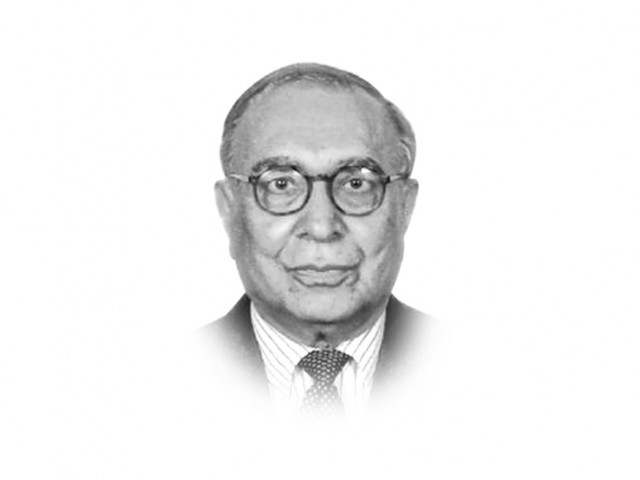A troubled land
It is also about time that parliament rises to the challenge. It is a race against time but it can be won.

A troubled land
Consider the land. A sprawling region of Pakistan spread over 347,190 sq kms abuts Afghanistan and Iran and provides Pakistan with a long coastline that links the country with the Persian Gulf and pioneers its maritime stretch into South Asia. Home to oil, gas and minerals such as copper, coal, marble, chromite, barite, limestone, shale, it is the principal guarantee of Pakistan’s future prosperity. But more importantly, consider its people in their historical context. Viewed through the prism of the writings of Herder and Fichte, as was done by a contributor to this newspaper only the other day [“The Balochistan conundrum”], Amber Darr, Feb 15], the inhabitants of all provinces of Pakistan qualify to be ‘nations’ or, if one is squeamish, ‘nationalities’ with hallowed traditions of distinctive culture and well-developed languages. Pakistan does not have pure ethnic or linguistic provinces, each one of them being a mosaic of great richness. All its peoples came together in a federation in 1947 confident that their political, economic and cultural rights would face no threat in a state created as a mighty hedge against the hegemony of one religious group that would dominate India under majoritarian principles.
Unfortunately, in Balochistan’s case, this confidence was undermined by some issues that accompanied the accession of its ‘princely’ states to Pakistan in 1947-48 and, far more seriously, by the persistent neo-colonial approach to administering a huge province with sparse population (estimated at 7,597,000 now) with a strong tribal structure. Balochistan had its tribal chiefs but not a middle class that could participate effectively in the tortuous quest for equilibrium in a federation with an inherent imbalance with one populous province that enjoyed a dominant representation in the national army and security forces. Regrettably, during both periods — of military rule and of democratic restoration — Balochistan was the victim of impatience on the part of the federal dispensations leading to a hasty recourse to the use of force to suppress dissent.
This was, indeed, the shortest route to converting this dissent into an armed insurgency that has locked the relations of the federation with its utterly indispensible constituent into a spiral of mindless violence. The present situation in the province represents the worst manifestation of an enduring contradiction of Pakistan’s polity: it is, at the declaratory level, committed to parliamentary democracy as the linchpin of national unity, political integration and economic development and the rule of law that underwrites the social contract while, at the practical level, it tolerates a stubborn denial of the rights of the people, particularly of smaller ‘nationalities’, disadvantaged population groups and minorities. The Balochistan initiatives of the present government run a heavy risk of being consigned to the category of ‘too little, too late’ in the histories of militant sub-national movements. Clearly, Islamabad will have to stay one step ahead of those in the Balochi movement who have lost faith in negotiations and of predatory foreign powers that see a target of opportunity in the current crisis.
Instead of rejecting out of hand the pre-conditions attached to a dialogue by the so-called ‘separatists’, Islamabad should engage them to help create conditions in which all demands could be negotiated. The Constitution has space for genuine autonomy without undermining the foundations of a federal state. Above all, the taboo on a public debate on Balochistan must now end as it is no longer a sub-regional law and order issue; it has existential implications for the state. It is also high time that 64 years down the line, the Baloch should be able to count on the support of millions of other Pakistanis who are anxious to find the right answers to the divisive issues of their troubled land. It is also about time that parliament rises to the challenge and helps translate that national sentiment into effective policies. It is a race against time but it can be won.
Published in The Express Tribune, February 20th, 2012.
















COMMENTS
Comments are moderated and generally will be posted if they are on-topic and not abusive.
For more information, please see our Comments FAQ